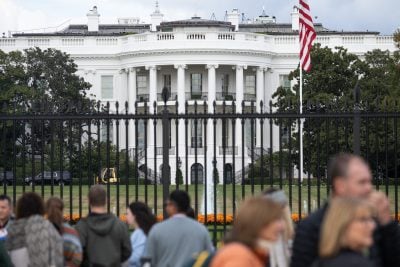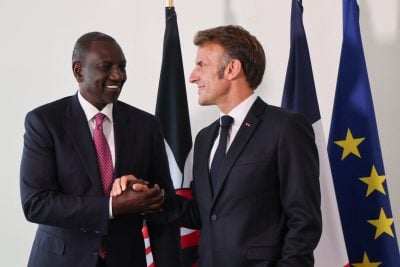In 2023 the global population was buffeted by warfare, supply chain problems, and high inflation. We also experienced the hottest year since records began – another grim reminder of the urgency needed to meet climate goals and the importance of global collaboration.
More than 2 billion voters in over 50 countries will head to the polls in 2024, marking a bellwether political event in which vast swathes will give their views on how their leaders are facing up to these challenges. Dynamics on the world stage are changing further, as five new countries also joined the ranks of the BRICS group on January 1st, adding Saudi Arabia, the United Arab Emirates, Iran, Egypt, and Ethiopia to the group and increasing the influence of the Global South in this historical election year.
This year’s World Economic Forum (WEF) Annual Meeting at Davos saw a renewed focus on Africa as the world’s fastest growing region and a key destination for investors looking to diversify their portfolios and boost resilience. While these opportunities may not always be plain sailing, given the world dynamics and global instability, Africa is a region which cannot be ignored.
Mineral marvels: Powering the energy transition
WEF research states that business action on reducing energy demand could unlock savings of $2 trillion for the global economy. With energy-intensity reduction in buildings, transport, and industry, these measures create cost-savings while also cutting greenhouse gas emissions. This comes after the central message of last year’s COP28 called for a tripling of renewable energy capacity by 2030. The pledge on global renewables and energy efficiency declared at COP28 serves as an opportunity for Africa, as it will increase demand for the continent’s abundant critical mineral resources and create employment opportunities for millions.
From an investment perspective, Africa’s critical mineral reserves will come to the fore as vital components in this greening of the grid. Africa contains around 85% of the world’s manganese, 80% of platinum and chromium, and 47% of cobalt, as well as vast reserves of lithium, phosphate, and nickel. These minerals are vital for powering solar panels, electric vehicles, and wind turbines.
China is currently leading the charge in the investment of Africa’s critical minerals resources. There have also been significant investments from United States, Australian, British and Japanese firms in the region in the last 18 months, and a positive push for developing symbiotic investment relationships between the investors and African countries. For instance, Japan and the UK are forging partnerships with mineral-rich African countries to build local processing capabilities, diversify supplies, and local refining facilities.
Africa’s role in unlocking investment diversity
Despite the opportunity for investment in critical resources, almost more important to support this is the much-needed financial backing in infrastructure. Africa has significant infrastructure needs, particularly in areas like power and electricity, providing an opportunity for foreign investors to reap long-term rewards from these projects.
Investing in infrastructure helps to build more efficient transportation networks, therefore creating more resilient supply chains, boosting exports, and attracting more foreign investors. For instance, the UK has renewed its interest in Africa post-Brexit as it attempts to foster new trade partnerships and bolster sustainable economic growth overseas and will be hosting The UK-African Investment Summit in April. A new £48m ($60.6m) programme to improve infrastructure in Zambia and Tanzania was recently announced by the UK government, aiming to reduce the transportation cost of goods, support infrastructure for processing raw materials, and improve waste management.
As foreign investors look to boost infrastructure projects across the continent, huge strides are being made to reduce trade barriers and deepen economic ties across the continent. Efforts are underway to form the African Continental Free Trade Area (AfCFTA), encompassing all 55 members of the African Union and creating what will be the world’s largest free trade area. AfCFTA is expected to boost intra-African trade by more than 52% attracting huge sums of overseas investment by reducing tariffs and creating a single market for goods and services.
Africa made substantial headway at Davos 2024, with the spotlight resolutely on the continent’s economic growth. The WEF and AfCFTA unveiled a new initiative comprised of 40 global companies to accelerate private sector investment across key areas in Africa’s industrialisation, including transport and logistics, agriculture, pharmaceuticals, and automotives. Leveraging the power of the free trade area will boost global investment in Africa, helping to facilitate innovation in 2024 and beyond.
Geopolitical aspirations are the fuel for growth
Davos put Africa firmly on the agenda, with the region coming to the fore as an investment destination for foreign investors. The whirlwind year of geopolitical and economic disruption is creating growth opportunities in Africa, pushing the continent to the cusp of a new era of opportunity. Africa also provides vital opportunities for those seeking diversification – an increasingly important consideration as the global geopolitical environment pushes investors to seek stability through spreading risk.
2024 will be a landmark year in global politics, and conversations at Davos underscored that driving rapid transformation, investing in infrastructure, and fuelling the world’s energy transition will be a key focus for the coming months. The shifting economic and political environment will create the perfect storm to fuel investment in the continent – and enhance its capacity to perform on the global stage.
Want to continue reading? Subscribe today.
You've read all your free articles for this month! Subscribe now to enjoy full access to our content.
Digital Monthly
£8.00 / month
Receive full unlimited access to our articles, opinions, podcasts and more.
Digital Yearly
£70.00 / year
Our best value offer - save £26 and gain access to all of our digital content for an entire year!

 Sign in with Google
Sign in with Google 



